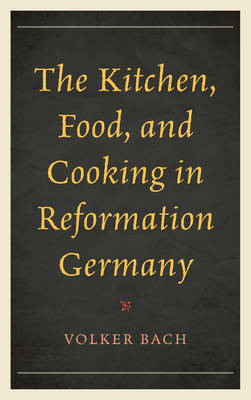Historic Kitchens
1 total work
In international culinary history, Germany is still largely a blank space, its unparalleled wealth of source material and large body of published research available only to readers of German. This books aims to give everybody else an overview of German foodways at a crucial juncture in its history. The Reformation era, broadly speaking from the Imperial Reforms of the 1480s to the beginning of the Thirty Years' War, laid the foundations for many developments in German culture, language, and history, not least the notion of its existence as a country. Understanding the food traditions and habits of the time is important to anyone studying Germany's culinary history and identity.
Using original source material, food production, processing and consumption are explored with a view to the social significance of food and the practicalities of feeding a growing population. Food habits across the social spectrum are presented, looking at the foodways of rich and poor in city and country. The study shows a foodscape richly differentiated by region, class, income, gender and religion, but united by a shared culinary identity that was just beginning to emerge. An appendix of recipes helps the reader gain an appreciation of the practical aspects of food in the age of Martin Luther.
Using original source material, food production, processing and consumption are explored with a view to the social significance of food and the practicalities of feeding a growing population. Food habits across the social spectrum are presented, looking at the foodways of rich and poor in city and country. The study shows a foodscape richly differentiated by region, class, income, gender and religion, but united by a shared culinary identity that was just beginning to emerge. An appendix of recipes helps the reader gain an appreciation of the practical aspects of food in the age of Martin Luther.
